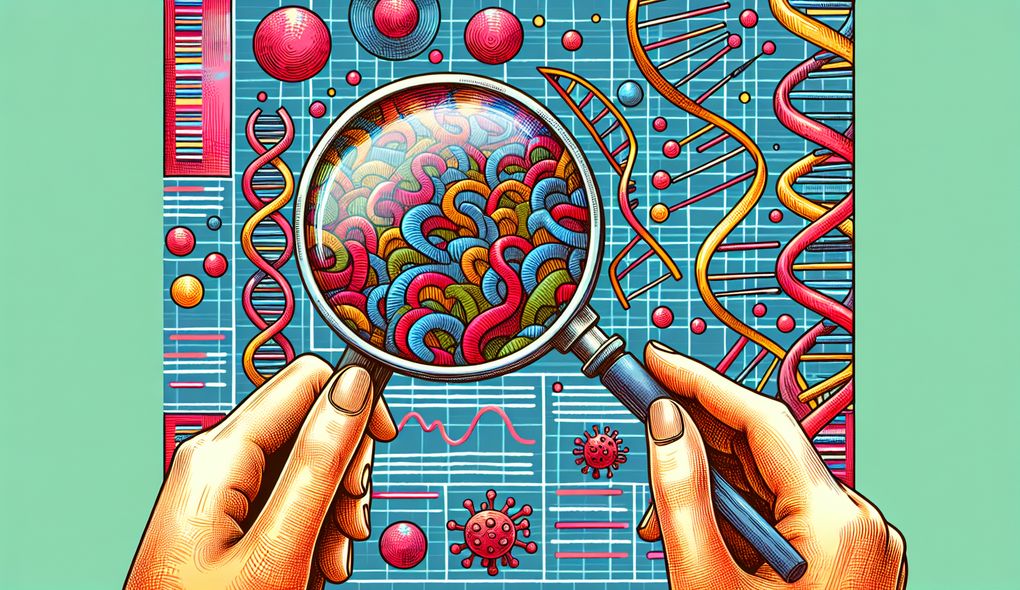How would you explain complex genetic information to someone who is not familiar with the subject?
JUNIOR LEVEL

Sample answer to the question:
When explaining complex genetic information to someone who is not familiar with the subject, I would start by breaking down the concepts into simple terms. I would use analogies or real-life examples to help the person relate to the information. Additionally, I would avoid using technical jargon and use language that the person is familiar with. I would also emphasize the importance of genetic testing and its potential outcomes, highlighting the benefits and risks. I would listen actively to the person's concerns and questions and address them with empathy and understanding. Overall, my goal would be to convey the information in a clear and compassionate manner.
Here is a more solid answer:
When explaining complex genetic information to someone unfamiliar with the subject, I begin by building a foundation of understanding. I would start with basic concepts, such as DNA and genes, using relatable examples like a recipe or instruction manual. Then, I would gradually introduce more complex topics, connecting them to the person's everyday life. For instance, I might explain genetic mutations by comparing them to typos in a book. Throughout the conversation, I would actively listen to the person's concerns and questions, providing reassurance and addressing any misconceptions. I would avoid using technical jargon and instead use language that the person is comfortable with. By approaching the conversation with empathy and patience, I aim to create a safe space where the person feels heard and supported.
Why is this a more solid answer?
This is a solid answer as it expands on the basic answer by providing specific examples and relatable explanations to make the complex genetic information more accessible. It emphasizes active listening, empathy, and patience, which reflect the skills required for the role of a Genetic Testing Advisor. However, it could still be improved by incorporating more information about the potential outcomes of genetic testing and the ethical considerations involved.
An example of a exceptional answer:
When explaining complex genetic information to someone who is not familiar with the subject, I adopt a comprehensive approach to ensure their understanding. I begin by establishing a foundation of basic genetic principles, such as DNA and genes, using relatable metaphors and analogies. For example, I might compare genes to instructions in a recipe book, highlighting how variations in genes can impact our health. As the conversation progresses, I tailor the information to the person's specific concerns and interests, providing real-life examples and stories that resonate with them. I address their questions and misconceptions with patience and clarity, making sure they feel heard and supported throughout. Additionally, I discuss the potential outcomes of genetic testing, including the benefits of early detection and personalized treatment plans, as well as the potential psychological and emotional implications. I also emphasize the importance of privacy and ethical considerations, assuring them that their information will be handled with the utmost confidentiality. By combining scientific knowledge with effective communication skills, empathy, and a person-centered approach, I aim to empower individuals to make informed decisions regarding genetic testing.
Why is this an exceptional answer?
This answer goes above and beyond by including comprehensive explanations using relatable metaphors and analogies, specific examples, and an in-depth discussion of the potential outcomes and ethical considerations of genetic testing. It demonstrates the candidate's ability to communicate complex information effectively while addressing the individual's concerns and needs. The answer also showcases the candidate's emphasis on privacy and ethical standards, which are important qualities for a Genetic Testing Advisor. However, it could be further improved by providing more information on integrating genetic testing into patient care plans and staying up-to-date with the latest advancements in genetics.
How to prepare for this question:
- Familiarize yourself with common genetic testing procedures and their implications.
- Practice explaining complex scientific concepts in simple terms using relatable examples and analogies.
- Develop active listening and communication skills to address patients' concerns and questions empathetically.
- Stay updated with the latest developments in genetic science to provide accurate information.
- Consider the ethical and privacy considerations related to genetic testing and be prepared to discuss them with patients.
- Reflect on your experiences in educating others about complex topics and highlight your ability to simplify information effectively.
What are interviewers evaluating with this question?
- Knowledge of genetic testing procedures and implications.
- Ability to interpret and convey scientific information to non-experts.
- Empathy and understanding for patients' concerns and questions.
- Active listening and educational skills.

